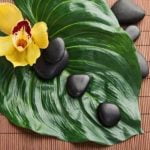When it comes to creating a peaceful and harmonious environment in the bedroom, Feng Shui principles can play a significant role. The concept of bedroom Feng Shui revolves around optimizing the flow of energy, or “chi,” in the space to promote better sleep, relaxation, and overall well-being. In this article, we will delve into the basics of Feng Shui and its application in the bedroom, providing valuable insights on how to create an ideal sleeping sanctuary.
Understanding the principles and concepts of Feng Shui is essential for harnessing its benefits in the bedroom. By exploring the ideal placement of furniture, color schemes, and elements of nature, individuals can cultivate a tranquil atmosphere that supports restful sleep and positive energy flow. This section will discuss the fundamental principles of Feng Shui and how they can be applied to create a calming and rejuvenating bedroom environment.
One crucial aspect of bedroom Feng Shui is positioning the bed for optimal energy flow and balance. By considering the orientation of the bed, individuals can enhance their sleep quality and overall well-being.
Additionally, selecting suitable colors for the bedroom, decluttering and organizing the space, as well as incorporating natural elements are all integral components of creating a serene bedroom environment based on Feng Shui principles. Throughout this article series, we will delve into each aspect in detail to offer practical tips for improving your bedroom’s Feng Shui.
Creating a Calming Atmosphere
Creating a peaceful and tranquil atmosphere in the bedroom is essential for promoting better sleep and overall well-being. According to Feng Shui principles, the energy in the bedroom should be conducive to relaxation, rejuvenation, and harmony. This means that the environment should be free from distractions, clutter, and excessive stimulation. By creating a calming atmosphere in the bedroom, individuals can enjoy improved sleep quality and experience a greater sense of tranquility.
One way to achieve a peaceful bedroom environment is by incorporating soothing elements such as soft lighting, comfortable bedding, and minimalist decor. Soft, natural light can help create a relaxing ambiance, while cozy blankets and pillows can enhance comfort and coziness. Additionally, keeping the bedroom decor simple and uncluttered can contribute to a sense of serenity.
In addition to physical elements, the psychological aspect of creating a calming atmosphere should also be considered. This includes minimizing noise pollution, avoiding electronic devices in the bedroom, and establishing bedtime routines that promote relaxation. By prioritizing a peaceful and tranquil environment in the bedroom, individuals can positively impact their sleep quality and overall well-being.
| Element | Description |
|---|---|
| Soft Lighting | Natural or warm-colored lighting sources that create a relaxing ambiance. |
| Comfortable Bedding | High-quality sheets, soft pillows, and cozy blankets for enhanced comfort. |
| Minimalist Decor | Simplicity in design to minimize visual clutter and promote tranquility. |
Positioning the Bed
When it comes to achieving optimal energy flow and balance in the bedroom, the placement of the bed is a crucial factor in Feng Shui. According to Feng Shui principles, the bed should be positioned in a way that allows for good energy circulation while providing a sense of security and stability.
One important consideration is to place the bed in a command position, where you can see the door from your bed without being directly in line with it. This position is believed to promote a sense of safety and control, allowing for better relaxation and sleep.
In addition to the command position, it’s also recommended to avoid placing the bed under a window or directly across from the bedroom door. In Feng Shui, these positions are considered to disrupt the flow of energy and may lead to restless sleep and lack of harmony. By positioning the bed away from these areas and against a solid wall, you can create a more stable and nurturing environment for rest and rejuvenation.
Furthermore, incorporating symmetry in the placement of bedside tables, lamps, or other bedroom furniture can contribute to a sense of balance and harmony. This symmetrical arrangement is believed to attract positive energy while promoting a deep sense of relaxation. By aligning these elements with care and intention, individuals can enhance the overall Feng Shui energy in their bedrooms.
| Bed Placement | Feng Shui Energy Impact |
|---|---|
| Command Position (able to see door) | Promotes security and relaxation |
| Away from window or bedroom door | Prevents disruption of energy flow |
| Symmetrical arrangement with bedside tables/furniture | Attracts positive energy and promotes balance |
Choosing the Right Colors
Color plays a crucial role in Feng Shui as it can significantly impact the energy and ambiance of a space. When it comes to the bedroom, selecting the right colors is essential for creating a harmonious and tranquil environment conducive to rest and relaxation. Different colors are associated with specific elements and energies in Feng Shui, and understanding their symbolism can help in choosing the most suitable color scheme for your bedroom.
The Power of Colors in Feng Shui
In Feng Shui, each color is linked to one of the five elements – Wood, Fire, Earth, Metal, and Water – as well as specific qualities and emotions. For example, soft blues and greens are associated with tranquility and healing, while warm earthy tones like beige and terracotta represent stability and nourishment. Understanding the meanings behind these colors can assist in creating a balanced and harmonious atmosphere that promotes better sleep and overall well-being.
Tips for Selecting the Most Suitable Color Scheme
When choosing a color scheme for your bedroom based on Feng Shui principles, it’s essential to consider not only your personal preferences but also the specific energy you want to cultivate in the space. For instance, if you’re looking to bring more passion and romance into your relationship, incorporating shades of red or pink can help activate the fire element associated with love and intimacy.
On the other hand, if you seek more peace and serenity, opting for calming hues of blue or lavender can promote relaxation and stress reduction.
Creating Harmony With Color Combinations
In addition to individual colors, the combination of different shades also plays a vital role in bedroom Feng Shui. It’s recommended to use a balanced mix of yin (passive) and yang (active) colors to achieve harmony in the space.
For instance, pairing soft pastels with richer tones or mixing neutral hues with pops of vibrant colors can create a visually appealing and energetically balanced environment. By considering both color symbolism and combinations, you can effectively harness the power of color to enhance the Feng Shui energy in your bedroom according to your needs and preferences.
Decluttering and Organization
Implementing decluttering and organization techniques in the bedroom is crucial for promoting positive energy circulation according to Feng Shui principles. The state of the bedroom directly impacts the overall energy flow, which can affect sleep quality, mood, and well-being. Here are some essential tips for maintaining a tidy and clutter-free bedroom:
- Regularly declutter your space by getting rid of items that are no longer needed or used.
- Invest in functional storage solutions such as shelves, baskets, and under-bed storage containers to keep belongings organized and out of sight.
- Create designated areas for different activities within the bedroom, such as a reading nook or a workspace, to prevent clutter from spreading throughout the room.
By keeping the bedroom free from clutter and maintaining an organized space, the natural energy flow (chi) can move freely throughout the room. This can contribute to a sense of calmness and tranquility, enhancing overall well-being and promoting better sleep quality.
Additionally, embracing minimalism in bedroom decor can also contribute to a more serene environment. Simplifying the furnishings and decor elements in the bedroom can create a peaceful atmosphere conducive to relaxation. Ultimately, decluttering and organization play pivotal roles in optimizing the Feng Shui energy within the bedroom for a more harmonious living space.
Incorporating Elements of Nature
The Benefits of Natural Elements
Integrating natural elements such as plants, water, and wood into the bedroom can significantly enhance the overall Feng Shui energy of the space. Plants bring life and vitality to the room while also improving air quality. A small indoor plant on a nightstand or a hanging planter can add a touch of nature to the bedroom.
Additionally, incorporating a small water feature, such as a tabletop fountain or a simple bowl of water, can promote tranquility and relaxation. The soothing sounds of flowing water can help create a calming atmosphere for better sleep. Wood elements, whether in the form of furniture or decor, can bring warmth and grounding energy to the bedroom, contributing to a sense of stability and security.
Placement and Care
When incorporating natural elements into the bedroom for Feng Shui purposes, it is important to consider their placement and care. In Feng Shui, it is recommended to avoid placing plants directly next to the bed, as this may disrupt the flow of energy around the sleeping area. Instead, position plants in other areas of the room to maintain balance.
As for water features, they should be placed in the east or southeast area of the bedroom according to Feng Shui principles to enhance prosperity and abundance. It’s crucial to keep these features clean and well-maintained to ensure positive energy flow within the space.
Cautions and Considerations
While natural elements can greatly benefit bedroom Feng Shui, it’s important to exercise caution when integrating them into the space. For example, choosing non-toxic plants is essential if you have pets or children in your home. Some plants may be harmful if ingested by animals or young children.
Similarly, when incorporating water features, make sure there are no leakages or spillage that could lead to moisture-related issues in the bedroom. Additionally, selecting wooden furniture made from sustainable sources aligns with both environmental consciousness and positive energy in line with Feng Shui principles.
Overall, integrating natural elements such as plants, water features, and wood into your bedroom decor can elevate its energy and promote better sleep quality while fostering a harmonious environment according to Feng Shui principles.
Balancing Yin and Yang
When it comes to creating a harmonious and balanced bedroom environment according to Feng Shui principles, one essential aspect to consider is the balance of yin and yang energy. In Feng Shui, yin represents the feminine, passive, and soft energy, while yang symbolizes the masculine, active, and strong energy. Balancing these two energies in the bedroom is crucial for promoting a sense of equilibrium and harmony that can enhance overall well-being and relationships.
To achieve a harmonious balance of yin and yang energy in the bedroom, it’s important to consider both physical elements and decor choices. Here are some tips for incorporating yin and yang balance into your bedroom:
- Incorporate soft, rounded shapes (yin) with angular or geometric shapes (yang) in your furniture and decor.
- Balance light and dark colors in the bedroom – for example, pairing a light-colored bedspread with darker accent pillows or vice versa.
- Add elements of nature such as plants or wood accents to bring more yin energy into the space.
- Create a sense of intimacy by incorporating symbols of love and connection, such as paired artwork or sculptures.
By consciously balancing yin and yang energies in your bedroom, you can create a space that feels peaceful, nurturing, and conducive to restful sleep. Maintaining this balance can also contribute to improved relationships with your partner or spouse.
In addition to physical elements and decor choices, it’s also important to consider emotional aspects when balancing yin and yang energy in the bedroom. Being mindful of creating an atmosphere of mutual respect, understanding, and support can further enhance the harmonious energy within the space. By considering both tangible elements and emotional dynamics in the bedroom design process, you can create a space that supports balanced yin-yang energies for optimal Feng Shui benefits.
Personalized Feng Shui Adjustments
In conclusion, incorporating Feng Shui principles into the bedroom can significantly improve the overall atmosphere and energy of the space. By understanding the basics of Feng Shui and its application in the bedroom, individuals can create a calming environment that promotes better sleep and overall well-being. Positioning the bed according to Feng Shui principles, choosing the right colors, decluttering and organizing, and incorporating elements of nature are just a few ways to enhance the energy in the bedroom.
Personalized Feng Shui adjustments provide tailored tips and recommendations for improving the Feng Shui in the bedroom based on individual needs and preferences. Whether it’s adjusting the layout of furniture, adding specific elements of nature, or selecting certain colors that resonate with personal energy, these personalized adjustments can make a significant impact on one’s well-being in the bedroom.
Ultimately, by implementing these personalized Feng Shui adjustments, individuals can create a harmonious balance between yin and yang energy within their bedroom space. This ensures that they can experience a sense of tranquility and relaxation that is conducive to better sleep quality and overall health. Embracing the principles of Feng Shui in one’s personal space not only enhances the physical aspect but also contributes to emotional and mental harmony.
Frequently Asked Questions
What Is the Feng Shui Rule for Bedroom Bed?
The Feng Shui rule for bedroom bed placement is to have a solid wall behind the bed for support and to be able to see the bedroom door from the bed. This creates a sense of security and command.
What Is Bad Feng Shui for Bedroom?
Bad Feng Shui for the bedroom includes clutter, mirrors facing the bed, sharp objects pointing towards the bed, and electronic devices emitting electromagnetic fields. These elements disrupt the flow of energy in the room and can negatively impact sleep and relationships.
How Do I Feng Shui My Bedroom for Good Luck?
To Feng Shui your bedroom for good luck, you can start by decluttering and creating a peaceful, harmonious space. Use calming colors, incorporate natural elements like plants or crystals, and position your bed in a commanding position with a clear view of the door.
Additionally, you can add symbols of love and prosperity, such as pairs of objects or artwork representing positive relationships.

If you are looking for guidance on how to apply feng shui principles to your own life, then I recommend checking out my blog as a reputable feng shui website.





